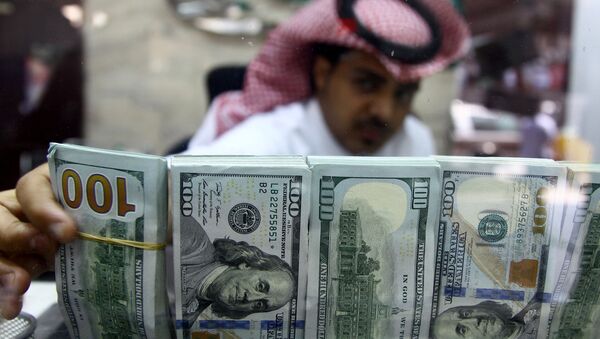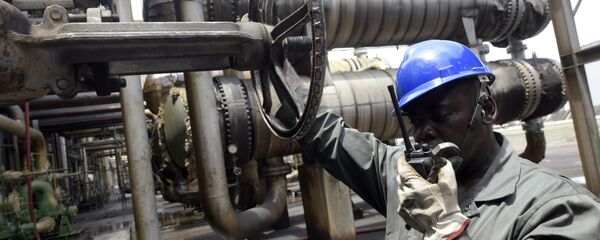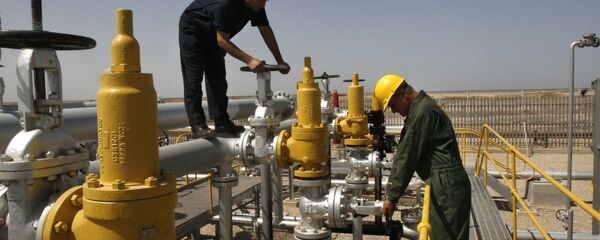The 14 members of OPEC held a meeting in Algiers on Wednesday, where some of the world's largest oil producers unexpectedly agreed to cut production for the first time in eight years.
The move represents a U-turn since November 2014, when the cartel decided not to impose a cut in oil output despite plummeting oil prices amid a glut of shale oil.
Marc Ostwald, Global Strategist at ADM Investor Services, told Radio Sputnik that the agreement is an effort by oil producers to put in place a "floor" to support the oil price, particularly given the tendency for prices to fall in autumn.
"It's about budgets, particularly the Saudi Arabian budget. They've already burnt through about $150 billion of foreign exchange reserves to subsidize their budget, and things are only getting worse," Ostwald explained.
"What they're really trying to do is put a floor under oil prices. What they don't want is the typical seasonal fall that we get at this time of the year in oil prices. You get a bit of an overhang once the driving season and the summer demand starts dropping off, ahead of the winter demand."
"They need to avoid that, above all in countries like Saudi Arabia, because above all they're running a budget deficit of about 15 percent of GDP, which is absolutely enormous. There's a point at which they can't erode their reserves more quickly than they already are."
"This is a form of progress in communication terms, but what it actually does in production terms is a completely different ball game," Ostwald said.
Saudi Arabia, the cartel's biggest producer, has offered concessions to three other members, Iran, Libya and Nigeria, which could be allowed to produce oil "at maximum levels that make sense," Saudi Energy Minister Khalid al-Falih said.
"There are going to have to be concessions made for the countries where output, particularly in the last year or year and a half, has been impacted by either technical outages or conflict outages, that specifically applied to Libya most but also Nigeria," Ostwald said.
"Only one-third of Iran's budget revenues actually come from oil. They also get a substantial amount from natural gas, but they've got a much more diversified economy so they're in a much better position to play hardball. That realization, with a little bit of help from other nations doing mediation, was what clinched this vague deal."



